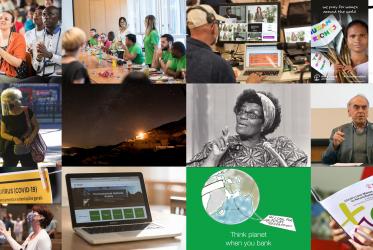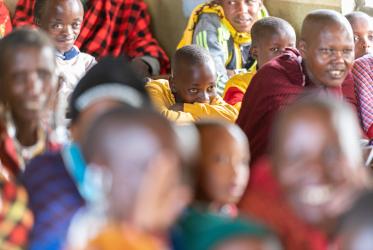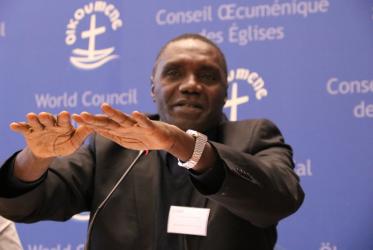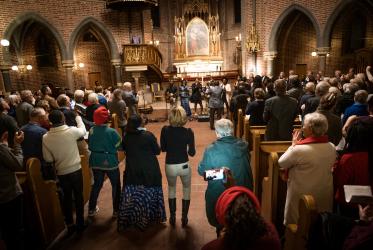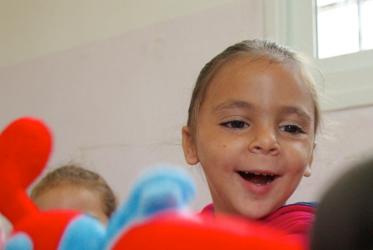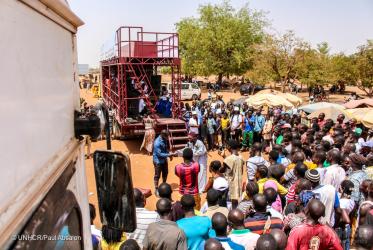Displaying 1 - 20 of 25
Dealing with traumas and healing of wounds
04 June 2019
Workshop in Jamaica focuses on human rights
16 May 2019
Church in Bali empowers youth to break cycle of poverty
18 March 2019
Agreement works toward food security in South Sudan
23 February 2019
#WCC70: Children in the Ecumenical Movement
20 December 2018
Oslo prays for peace, in week of Peace Prize ceremony
10 December 2018
Children on the Move forum gathers in Rome
16 October 2018
In Nigeria, WCC workshops focus on human rights
04 December 2017
WCC condemns terror attack on evacuees in Syria
16 April 2017
God’s forgotten children
20 June 2016
WCC urges support for social media campaign to end Syria crisis
25 January 2016

